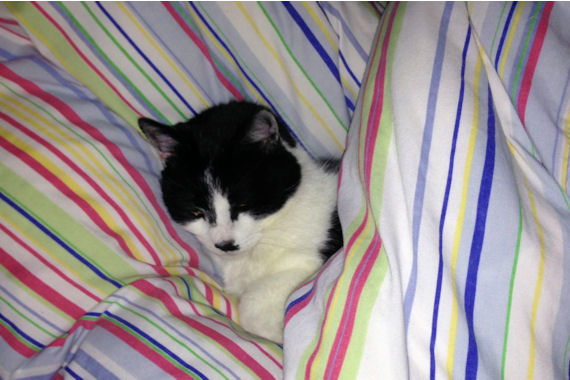
Yes, really. All I want to do is sleep. This has been me for the last few weeks. As soon as it gets dark, my brain seems to think it’s time to climb that wooden hill. It’s not something I’ve been terribly bothered by for a long time, but one of my boys has.
From what I hear, it affects all of us at some point in our lives. My husband is one of those who is up with the lark every morning, and while I’ve never understood how that is even remotely possible for anyone, I learned to live with my fuzzy head and setting three alarms every day to get up, and always having one at the opposite side of the room, so that I have to get up to switch it off. If the alarm is beside my head, I have a tendency to switch it off while I’m still in snoozeland.
I wouldn’t exactly call it excessive sleep as such, as if I fall asleep during the day, I end up awake during the night, which is never good, but I am struggling with the dark o’clock heavy eyes syndrome.
What I’ve learned so far:
Potential Causes
Meds and Medical Conditions
I have an underactive thyroid and fibromyalgia, and those tablets do sometimes interact. Taking the fibro meds at bedtime might be much more beneficial for me. Perhaps my thyroid has gone out of sync again, but since my review isn’t due for another few months, I’ll just have to suck this one up for a while.
Not Sleeping Enough
Hmmm. I’m not convinced by this one, but then again, my sleeping pattern is often all over the place. I have to get up for my mum during the night, and for middler on occasion, as well as chasing down the elder teens and constant lifts home in the wee hours. Perhaps it’s not surprising that I want to snooze in the afternoon. I often get three hours, then up for an hour, and back to sleep again.
Hypersomnia
Related to the above, and caused by broken and irregular sleep patterns, it’s possible that it is affecting me more than I realise. I could on many days, easily sleep for 12 hours if I were able to…..
Shifts
Well, I’m seeing a pattern here. Not enough sleep at once, hypersomnia caused by irregular sleeping patterns, that exist for shiftworkers, and people with my patterns of sleeping. It’s almost as if the body is trying to bank sleeping hours with the disruption in my circadian rhythm.
Food
This is a definite no brainer. Heavy stodge, stews and large meals definitely make me want to sleep. I’ve never understood those who can eat heavy meals and don’t feel wiped out in the afternoons because of it.
Mental Health
This isn’t me. Not unless you count stress with a disabled adult and a teen with mental health issues in the house. Perhaps I need a holiday…. It is a 24/7 job caring for someone who has dementia and is doubly incontinent with full body disability, as well as working on top of it, which often sees me pounding the computer keys at 2am. I am definitely not depressed, so that rules one condition out.
Sleeping Conditions
My youngest has been told he has insomnia. I’m not convinced. Like me, he struggles to get to sleep, but then struggles to wake up. I think screen time is a problem for most teenagers and if he actually went to bed and switched off his phone, I think he would be fine. Perhaps I should listen to that as well.
Youngest did have sleep apnea where he would choke when sleeping, stop breathing a little and wake up gasping. After many tests and different doctors, he finally got diagnosed with kissing tonsils, ie with no space either side of the throat for tonsils to slip into, his would close up and block air getting through. With a removal of the tonsils, hey presto, his sleep apnea and constant vomiting stopped.
I definitely don’t have narcolepsy, where sufferers fall asleep at all times of the day, it’s more a heavy feeling of wanting to close my eyes and drift off pleasantly.
What Can I Do?
I can’t change some things in my life, such as looking after my mum at all hours of the day and night, and not working isn’t an option, but I do need to be more disciplined with some other things around bedtime, that are just sensible, and would perhaps help others too.
- I don’t smoke, but if others do, they could try to reduce nicotine before bedtime.
- Try to chill out before finishing my bedtime routine, ie switching off the TV, laying down my phone and not reading a book.
- Try and get to bed for a set time. I know this is almost impossible with my family and work, but it doesn’t mean I can’t at least try.
- Avoid caffeine for the last hour before bedtime. I am really going to struggle with this, but given that I struggle to set a regular bedtime, it’s not a surprise.
- Get back to eating more healthily. I’ve not been great recently, which sort of goes with the sleep issue.
- Pinch youngests daylight lamp for evenings. It’s got to be worth a try to stop me wanting to zzzzz.
- Try and persuade my GP to test my thyroid levels early. Not holding out much hope for this one, but you never know.
- Get outside more in the winter. I’ve been hibernating recently. Perhaps this is bad for me…
I suspect anyone reading this is having their own sleep issue, so good luck to all, and it’s time to bring on the longer days. I’ve had enough of winter..







I agree with you John ogroats is a dreary miserable lifeless place stuck in the 1940s full of greedy little…
Hi Made lot of rolls and bread. Try make 50/50 rolls and come out great.and used my bread machine.
For your dry potato, look for Kerrs Pink, September onwards.